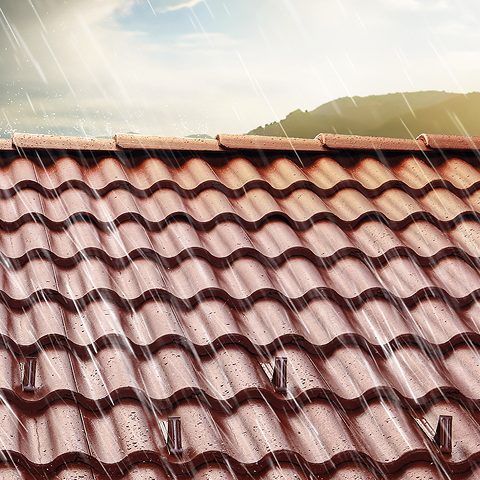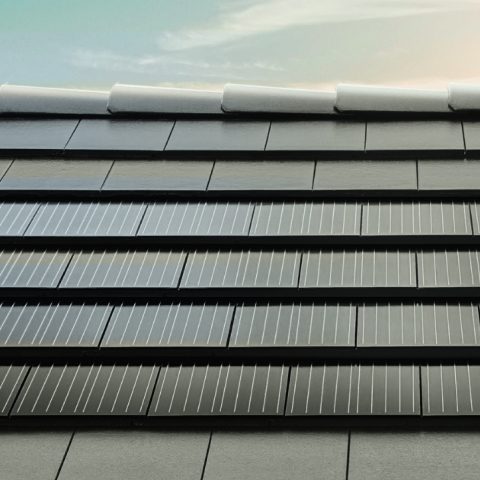Project Summary / Projekt összefoglalása – GEN2HU
Project Summary – GEN2HU
The GEN2HU project aims to implement new technologies as part of the development of proprietary second-generation roof-integrated solar photovoltaic module solution, GENERON. With GEN2HU, the objective is not only to increase the products’ sustainability and output power, but also to decrease the unit cost and the production waste at the same time. In terms of relative greenhouse gas reduction potential, the project is expected to reach 100% compared to the reference scenario. The planned project’s scope is to increase performance and the aesthetic appearance of GENERON by applying cutting-edge, innovative developments in the production process. The project includes three main innovative elements, namely, the use of shingle-matrix technology, decreasing the lead in the soldering alley, and the introduction of terracotta-coloured tiles. By implementing the abovementioned innovations, GEN2HU aims to create a cost-efficient, more sustainable, and aesthetically functional roof integrated solar module which will contribute to the accessibility of solar energy and green transition of European households. The project will be located at one of the main sites of Terrán, in Pécs, Hungary. Starting in July 2024, the project is planned to reach entry into operation and thus start volume production and market entry by April 2027 and will last until March 2030. The solution proposed would enable residential buildings, public buildings, businesses or even buildings with important cultural heritage to utilise solar energy without compromising their aesthetic appearance. The project is expected to contribute to and increase the cooperation between the actors of the supply chain and would open further directions in the product development aiming at improving the energy efficiency of historical residential and public buildings. The Project aims to support the green transition of the European Union, especially in the Central and Eastern European regions. Offering a cost-efficient, sustainable, roof-integrated solar module solution, with aesthetics also suitable for conventional architecture and landscape, the project can contribute to the increase of the renewable energy’s share in European households. GENERON 2.0 would also contribute to local and national policy objectives, including the Hungarian National Energy Strategy 2030.
Projekt összefoglalása – GEN2HU
A GEN2HU projekt célja új technológiák alkalmazása a szabadalmaztatott, második generációs tetőbe integrált napelemes megoldás, a GENERON továbbfejlesztésének részeként. Az innováció során a Terrán nemcsak a termék esztétikumának, fenntarthatóságának és teljesítményének növelésére törekszik, hanem az egységköltség és a gyártási hulladék redukálására is. Az üvegházhatású gázok relatív csökkentésének potenciálját tekintve a projekt várhatóan eléri a 100%-os eredményességet.
A tervek szerint a GENERON gyártási folyamatában a legmodernebb, innovatív fejlesztéseket alkalmazzák majd. A projekt három fő eleme: a mátrix zsindely-technológia alkalmazása, a forrasztópálya vezetésének csökkentése, valamint a terrakotta színű fedőréteg bevezetése. A fent említett innovációk megvalósításával a cél egy még költséghatékonyabb, fenntarthatóbb és esztétikusabb tetőcserépbe integrált napelemmodul létrehozása, amely hozzájárul a napenergia hozzáférhetőségéhez és az európai háztartások zöld átállásához. A projekt a Terrán egyik fő helyszínén, Pécsett, Magyarországon valósul meg. A 2024 júliusában megkezdett projekt keretein belül a tervek szerint az új gyártástechnológiát 2027. áprilisában helyezik üzembe a cégnél és kezdik meg a sorozatgyártást és a piaci bevezetést. A teljes Projekt 2030. márciusáig tart. A javasolt megoldás lakóépületek, középületek, üzletek vagy akár fontos építészeti örökségvédelem alatt álló épületeknél is esztétikai kompromisszum nélkül tenné lehetővé napelemes tetőcserép alkalmazását, és ezáltal az energiahatékonyságuk fokozását.
A Projekt várhatóan hozzájárul a kereskedői lánc szereplői közötti együttműködéshez, és új irányokat nyit meg a termékfejlesztés terén, különös tekintettel a történelmi lakó- és középületek energiahatékonyságának javítására. A Projekt célja az Európai Unió zöld átmenetének támogatása, különösen a közép-kelet-európai régiókban. A Projekt egy költséghatékony, fenntartható, tetőbe integrált napelemes megoldást kínál, amely esztétikailag is illeszkedik a hagyományos építészethez és tájhoz, és hozzájárulhat a megújuló energia részarányának növeléséhez az európai háztartásokban. A GENERON 2.0 emellett hozzájárulna a helyi és országos szakpolitikai, így a 2030-as Magyar Nemzeti Energiastratégia célkitűzéseinek megvalósításához is.












